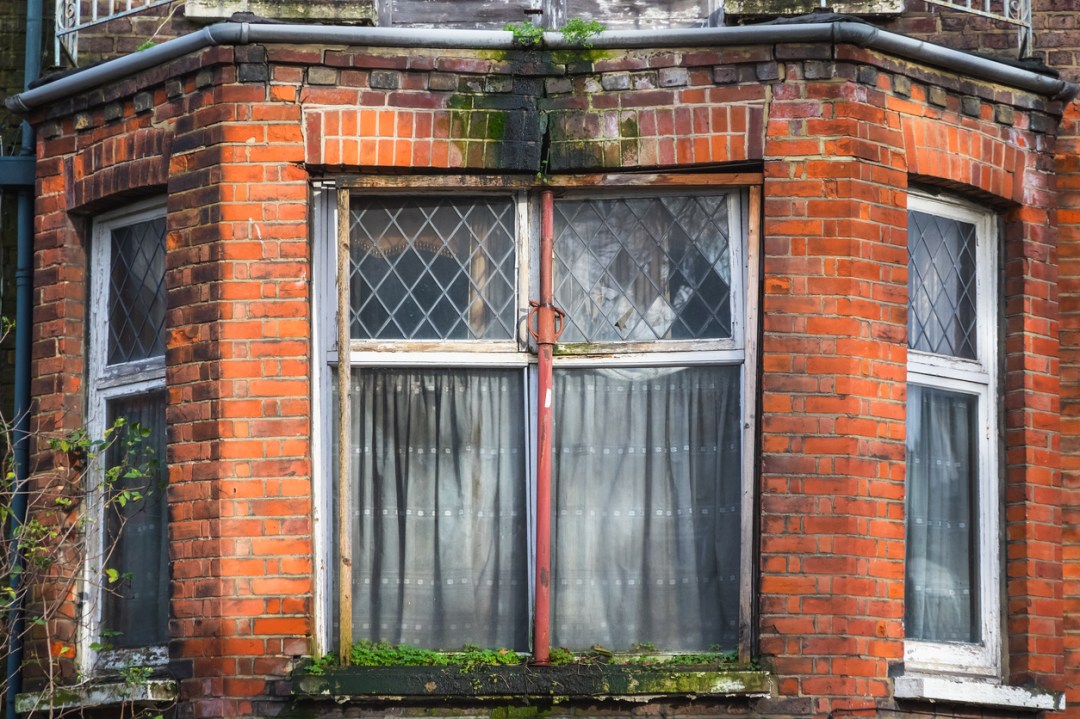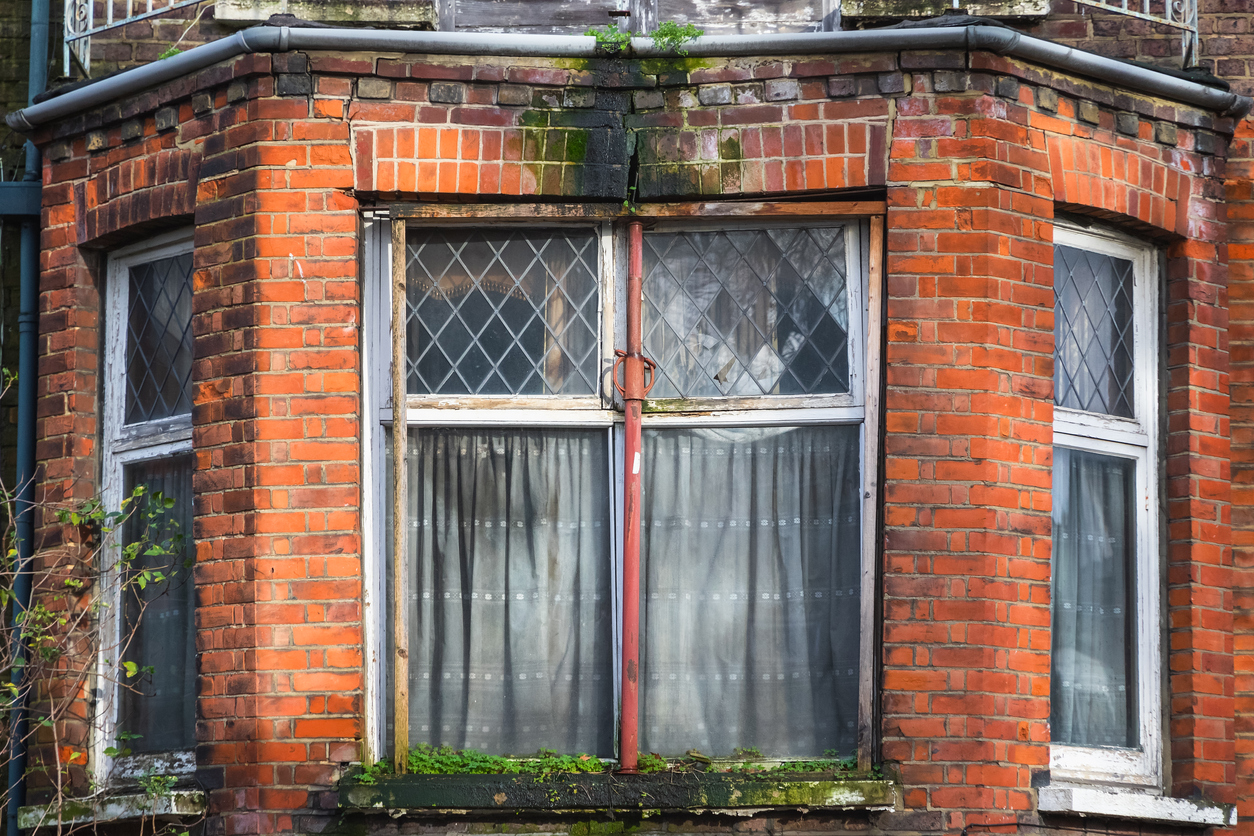The summer of 2013 was the third hottest on record in London. At the time I was living in a mouldy semi-detached in Clapham South; what happened in that house has left a lingering horror in my memory that changed the way I feel about London forever.
In the flat below us there lived an elusive elderly woman named Audrey. Before I signed the lease, the landlord had briefly mentioned her, saying only that she was a bit anti-social but nothing to worry about – ‘not violent or anything.’ That should have scared me off but I was desperate and my university course was due to begin in a matter of days. We signed the lease and sealed our fates for the next 12 months.
Audrey’s absence made me long for her familiar cat lady cries and clatter of cupboard doors
During that year, Audrey would permeate my consciousness nearly every hour of the day and would come to inhabit my dreams too. On our first night in the flat, my future husband and I woke to the slamming of what sounded like cheap cupboards. More unnervingly, the slams were punctuated by a series of strange, throaty cries – ‘like the cat lady in The Simpsons,’ as my husband describes it.
Every night Audrey gave forth her cry, an anguished, furious sound – accompanied by the usual slamming of cupboard doors. Every night my husband and I woke at 3 a.m. We started wearing earplugs but it didn’t help. Her cries were inescapable; they had an eerie, dreamlike tenor that still seeped in through the rubber plugs. One afternoon in the spring, I arrived back home with groceries and found Audrey shuffling down the drive, bending down to pick up leaves and then standing upright and swaying, jostling some strange garlands which she wore around her neck. That was the only time I ever saw her beyond the door of the ground-floor flat, its windows green with mildew.
Towards the middle of that scorching summer, my flatmates and I had noticed a smell – strong and organic, like blue cheese that had finally gone off. One night in July, there was a spectacular electrical storm, the thunder claps so loud that my flatmates and I were startled from our beds. We left our rooms, skittering into the lounge where we stopped and stood together in the light from the streetlamp outside. We were spooked, not by the thunder but by the rancid blue cheese smell, which was now so strong that it seemed to have seeped into our entire lives. Then all at once the thought occurred to us – we hadn’t heard from Audrey for several nights, perhaps even a week. ‘Call the police,’ I said. ‘No, let’s wait until morning, see if it goes away,’ said my husband, with characteristic optimism.
I didn’t sleep all night – Audrey’s absence made me long for her familiar cat lady cries and clatter of cupboard doors. My flatmates set off for the tube in the morning and I was left alone to solve the mystery of Audrey’s silence. At the time I was working from home, writing a dissertation on mortality in Shakespeare’s plays. At 8 a.m. I rang the police. They arrived a short time later with a small battering ram. I watched from my first-floor window as they hammered Audrey’s door down. When it gave way the officers reeled backwards, crying out in horror. Then they covered their noses. A few officers crept inside and emerged soon after. Later, one knocked on my door.
‘Well,’ he said, ‘we know where the smell is coming from. She’s dead. We’re going to take her out now. And don’t look.’ Of course, I had to. After 20 minutes, a stretcher emerged from the ground-floor flat, bearing Audrey and her little white plastic death shroud. The officer knocked on my door again. ‘Do you know her next of kin?’ I didn’t – no one had ever come to her door in the year that I’d lived above her. ‘We need to identify her but we can’t do that by her face. It’s completely melted,’ the officer said, with commendable dignity. ‘Her whole body has melted into the floor,’ he continued perhaps unnecessarily, ‘and there’s a layer of flies an inch thick all over the house.’
Clapham and Lambeth Borough were once marshes. The land was drained in the mid-18th century for building but the damp, stagnant air remains. It’s chilly in winter but simply awful in summer, and the scorching heat of 2013 had made quick work of Audrey’s body. After the police took her away, my flatmates and I went out to get dinner. The thought of cooking inside the house was unbearable – it still smelled of decaying human flesh. Unwisely, we ordered barbecue wings with blue cheese dipping sauce. I couldn’t touch them. We toasted Audrey’s memory with a sombre clink of beer bottles: a drink to the woman with no friends, no kin, no face.
A few days later, there came another knock on the door and I answered it to a young woman who said she was Audrey’s niece. ‘I haven’t seen her in years,’ she said, ‘but I’m the only person alive who knew her.’ She thanked me for reporting Audrey missing; if I hadn’t, no one would ever have known she had died. No family member, GP, or landlord had seen her in years. Audrey died in a city of millions of people, all going about their lives with ruthless urgency. There are too many people in London to notice when one of them goes missing. It feels to me a heartless place to live. And so, a few years after Audrey’s death, I finally left London and moved to a small parish in Sussex. At least here I can be certain that if I ended up alone, someone – the rector perhaps, or the kindly postman – would notice if I died.







Comments